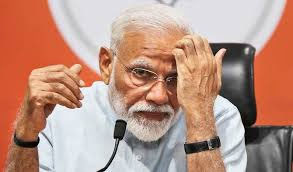Web Desk
Indian Prime Minister Narendra Modi was featured in TIME’s 100 list for 2020’s most influential people, apparently, for all the wrong reasons. The annual list – which puts down 100 of the year’s most influential artists, icons, leaders titans, and pioneers — was released on Tuesday night.
In the category for world leaders, Modi was named among the world’s 100 influential people by Karl Vick – who is a TIME editor at large.
Underscoring that India has been the world’s largest democracy for more than seven decades, the author also highlighted that the population of 1.3 billion includes Christians, Muslims, Sikhs, Buddhists, Jains, and other religious sects.
“The key to democracy is not, in fact, free elections. Those only tell who got the most votes. More important are the rights of those who did not vote for the winner,” Vick wrote while referring to Modi’s win in India’s general elections from last year.
He then pointed out how Modi has trampled the secular image of the country where people belonging to various religions once lived with harmony and acceptance for each other.
“All [minorities of the country] have abided in India, which the Dalai Lama (who has spent most of his life in refuge there) has lauded as ‘an example of harmony and stability’. [But], Narendra Modi has brought all that into doubt,” Vicks opined. “First elected on a populist promise of empowerment, his Hindu nationalist Bharatiya Janata Party rejected not only elitism but also pluralism, specifically targeting India’s Muslims.”
The author termed the “crucible of the pandemic” as a “pretense for stifling dissent” in the country, leading the world’s vibrant democracy to fall into “deeper into shadows”.
The Indian prime minister has been criticised globally over the treatment of minorities under his watch especially the Muslims who have been under constant threat from extremists Hindus.
The Human Rights Watch in a recent report had also highlighted that Muslims in India have been “increasingly at risk” since the Hindu nationalist BJP government led by Narendra Modi was first elected in 2014.










